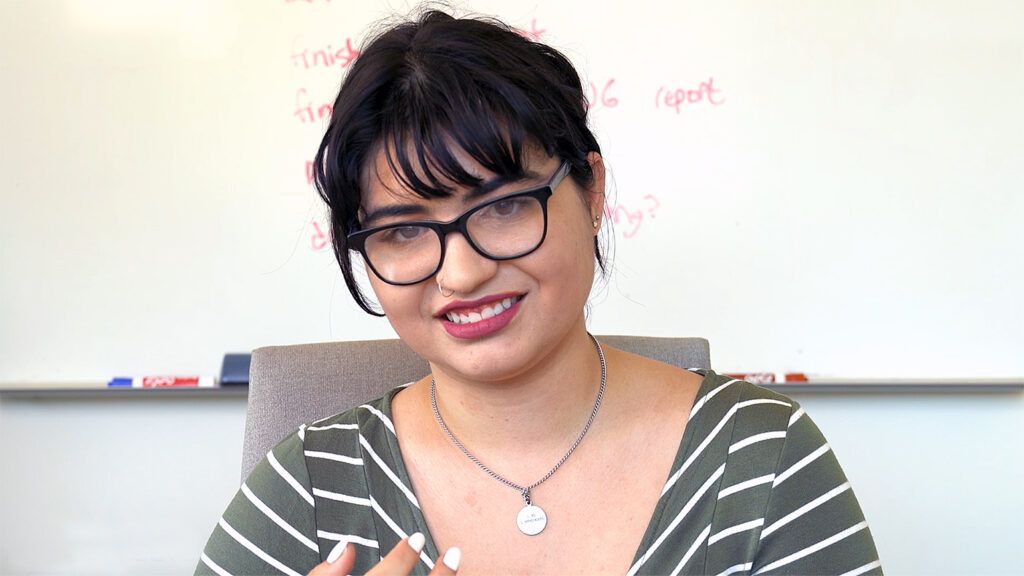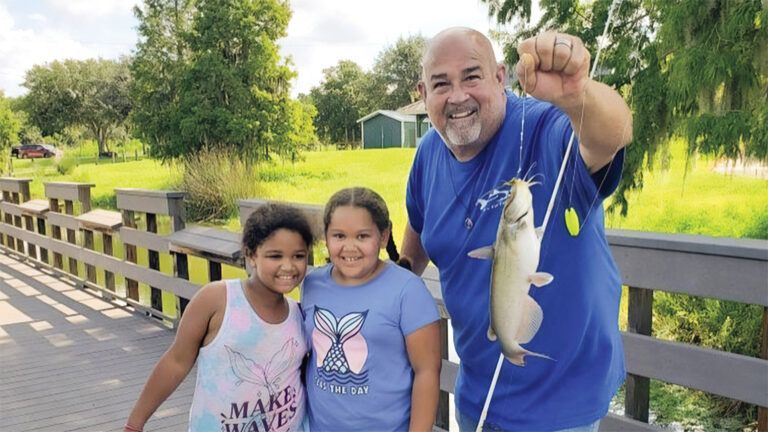Hi Guideposts, my name is Maria Rose Belding and we are here in my office at the MEANS database, where I’m the cofounder and executive director.
MEANS is pretty simple. We are an online communications platform for emergency food providers and their donors. We built a website that lets grocery stores, restaurants and other food retailers tell soup kitchens and homeless shelters and food pantries when they have excess food that they’d like to donate.
Our tool allows us to talk to thousands of nonprofits at once and for free. We’ve helped find new homes for more than 2.2 million pounds of food in the last five years and the average, from post to claim, is about 30 minutes across the country.
The passion for working in hunger really started for me in church; in my rural Iowa hometown, the food pantry’s in the church. So my passion for feeding people, especially with food that already exists, is about meeting that demand from my God that we provide for those that we have failed in other ways, that we take care of people not in a position to take care of themselves right now.
We hear a lot of misconceptions about people that use food pantries. First off, there’s 49 million Americans or so who are using a food pantry or food bank or a soup kitchen or some other emergency food program. So that’s a lot of our neighbors, and there’s really not one face of hunger in America. There’s really not one profile.
We do know that the majority of people that use the food pantry are employed. The majority of them are supporting small children and/or the elderly. The majority have a significant health problem, like heart disease or type 2 diabetes.
The biggest misconceptions that we hear about and see are that these are people who could be working and aren’t, that they are overwhelmingly of color—actually, the majority of people getting emergency food in the United States are white—that they’re just lazy, and that’s not true at all.
Right now MEANS is working with about 3000 soup kitchens, homeless shelters and food pantries spread across 49 US States and D.C. So we’re already pretty big, but our goals for the future are to get bigger, to move more food every day, to start working in more international spaces, to diversify the kind of food that we’re recovering—really just keep going. Because we throw away up to a third of our food supply in the United States and one in six of our neighbors is using a food pantry. So we’ve got a long ways to go.
All of the data available of how to get ahold of these nonprofits for the most part is pretty out of date. So by using a real-time system with the nonprofits on board, we’re able to make sure you can talk to everybody at once without ever picking up a phone.
One of the things that makes us really unique is that MEANS is free to use whether you are a nonprofit, whether you are a food donor—if you want to use it, you do not have to pay us for it.
Every nonprofit should have access to this pretty basic software. Everybody deserves access to this. So if you run a food pantry, if you know someone who runs a food pantry or volunteers there, you can go to meansdatabase.org and sign up.
The only time we’ll ever contact you is when we have the food that you’ve told us you need. And we’re not gonna just drop it on you. We’re not gonna assign it to you. You decide, when you get those notifications, do I actually want this donation? Does it make sense for me? Can I store it? You know yourselves far better than we ever could know you. So you’re in charge.
If you have extra food that you would like to donate, go find your local nonprofit. Go find your local food pantry or soup kitchen. They definitely exist. Go find them. Ask if they can use what you’ve got and then give it to them, or even better yet, just ask what they need and then go get it.





